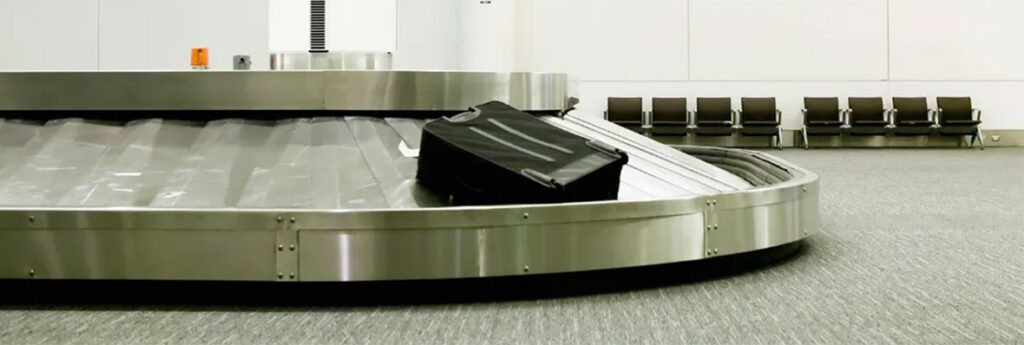A frequent traveller friend recently had an experience with missing luggage and she thought our readers might learn from her experience. Lyla, (not her real name), and her husband, planned a cruise vacation. On June 29, they flew Air Canada from Toronto to Barcelona via Montreal. The departure was delayed in Montreal. They had checked four bags, but only three made it to Barcelona. And the saga began.
The missing bag was immediately reported to SwissPort, which handles AC bags in Europe. A case number was opened. The couple were staying at their hotel for two nights before boarding their ship, but this was not noted. Lyla’s last name was also misspelled, so had Celebrity Cruises received the bag at the dock, it was likely Lyla said, they would find, “no such person on our manifest…”
Noticing the discrepancies, Lyla’s attempts to log into World Tracker, the AC tracing site, to correct the information – failed. The site had crashed.
The couple sailed without the bag.
After ten days of, “We’re still searching for your bag”, the World Tracker posted that Lyla’s bag had been delivered to her hotel four days after she checked out. A frustrated Lyla contacted the hotel only to learn they had not received the bag.
A message to Air Canada to reroute the bag to her home when found, “seemed lost in space. When we returned to Toronto on July 14, I tried to file for my interim out-of-pocket expenses, only to find that I could not do so until the bag was found.” She told us. “So, if it was lost permanently, I’d have no recourse – or something.”
Lyla finally received an email July 28 – 30 days after her original departure date – saying her bag had been located. It was returned to her home several days later. She filed expenses of $1,700.
The airline offered her $300. No way was Lyla going to accept that.
“So, I told Air Canada I’d see them in small claims – and they immediately got back to me offering to pay in full, including my court costs. Yeah. I didn’t even have to file the papers. They knew they didn’t have a legal leg to stand on if I did, and probably didn’t want a precedent set for others. Bingo.
“It seems to me, though, that this isn’t just about my expenses but part of a larger pattern of (airlines) evading their now-legal requirements for customer compensation due to delays, cancellations and associated costs: hotel, cabs, meals etc.
“They offer a FU settlement and then hope the customer will become hopelessly lost and discouraged trying to negotiate with them.”
That, said Lyla, is the real story – a pattern of corporate financial behavior/evasion hidden behind a mask of polite (and free) “we’re so sorry” emails.
And her experience she believes will help other travellers. So, here’s the advice of one frequent and savvy traveller offered by her to other travellers in the same situation:
“1) Decline to accept their first offer. Accepting any compensation, no matter how small, may come with conditions that its acceptance constitutes full settlement of the issue. Don’t try to dicker with them over the amount of compensation.
2) Inform them instead that you will be taking the unpaid debt (that’s what it is) to Small Claims Court for adjudication and you will include your court costs (about $300) in the expenses.
3) They are legally bound to pay you (keep your original receipts) according to Section 23 of the Air Passenger Rights regulations and the Montreal Convention on the liability of the airline.
4) They can’t win if you invoke your legal rights and have the receipts and tickets. If they fail to show up in court, you win the case by default. If they chose to send their lawyer, it will cost them hundreds in additional legal expenses – and they will still lose, because the law here is quite clear.
“That’s why they want to deal directly (i.e. screw with) the customer rather than risk further legal precedent against the corporation.”
Passengers should know their rights, says Lyla – and stand up for themselves.

